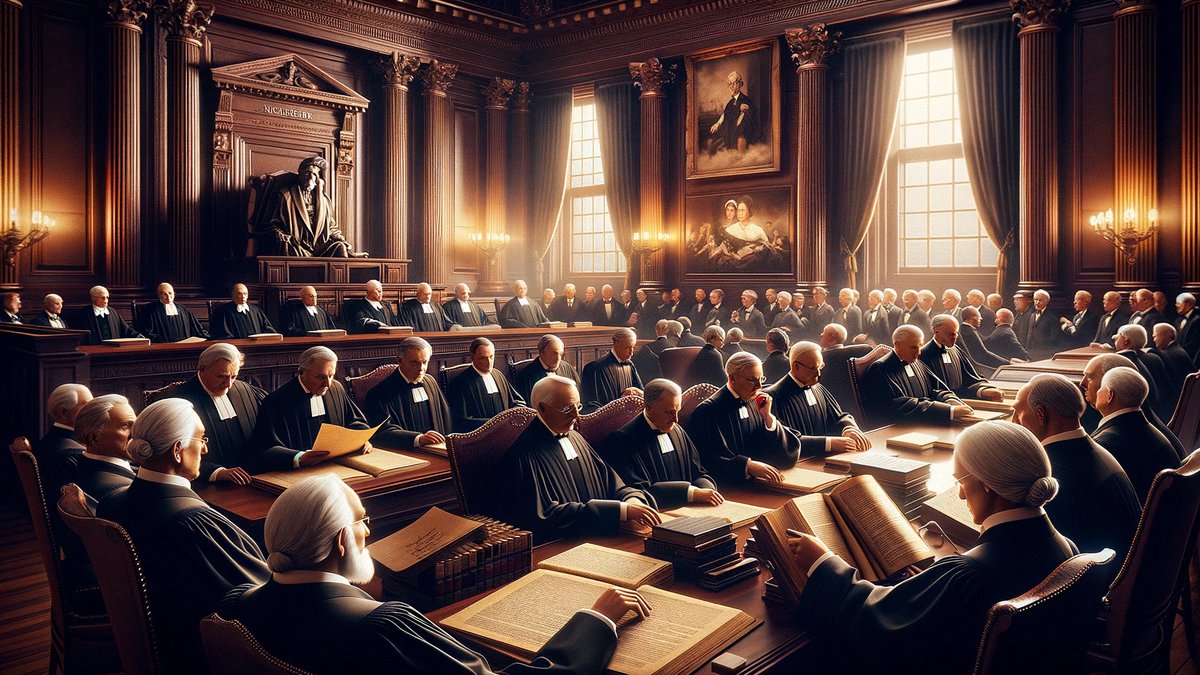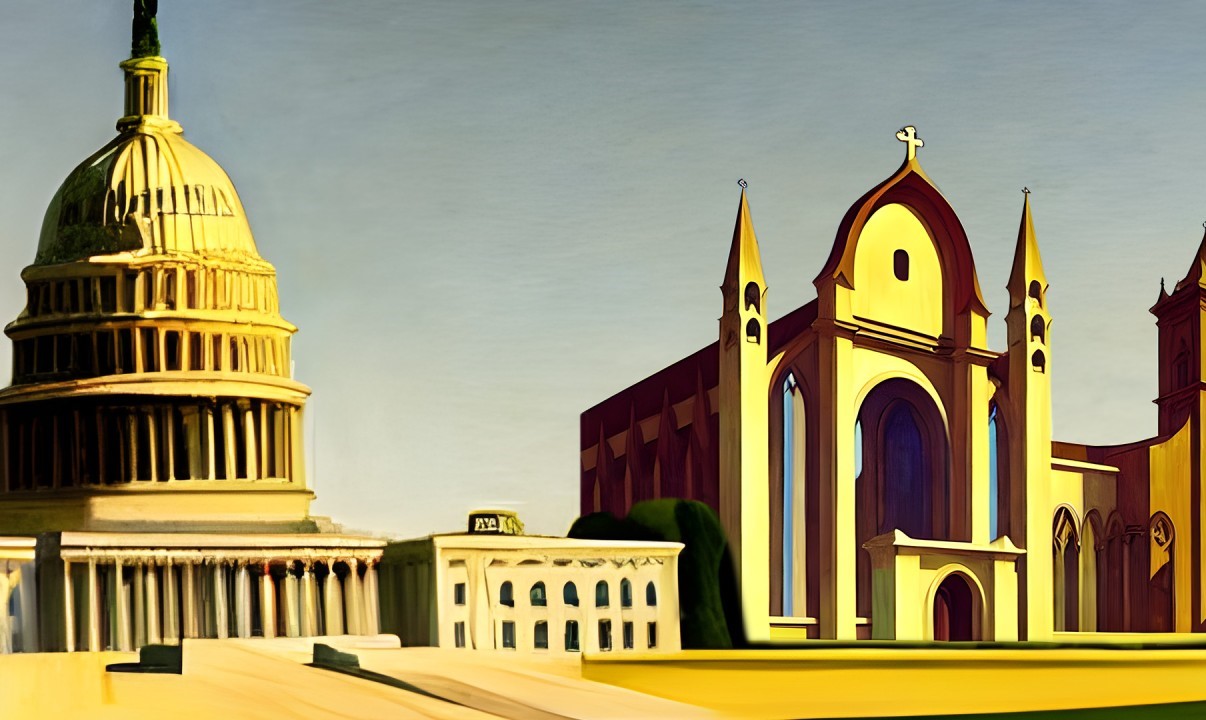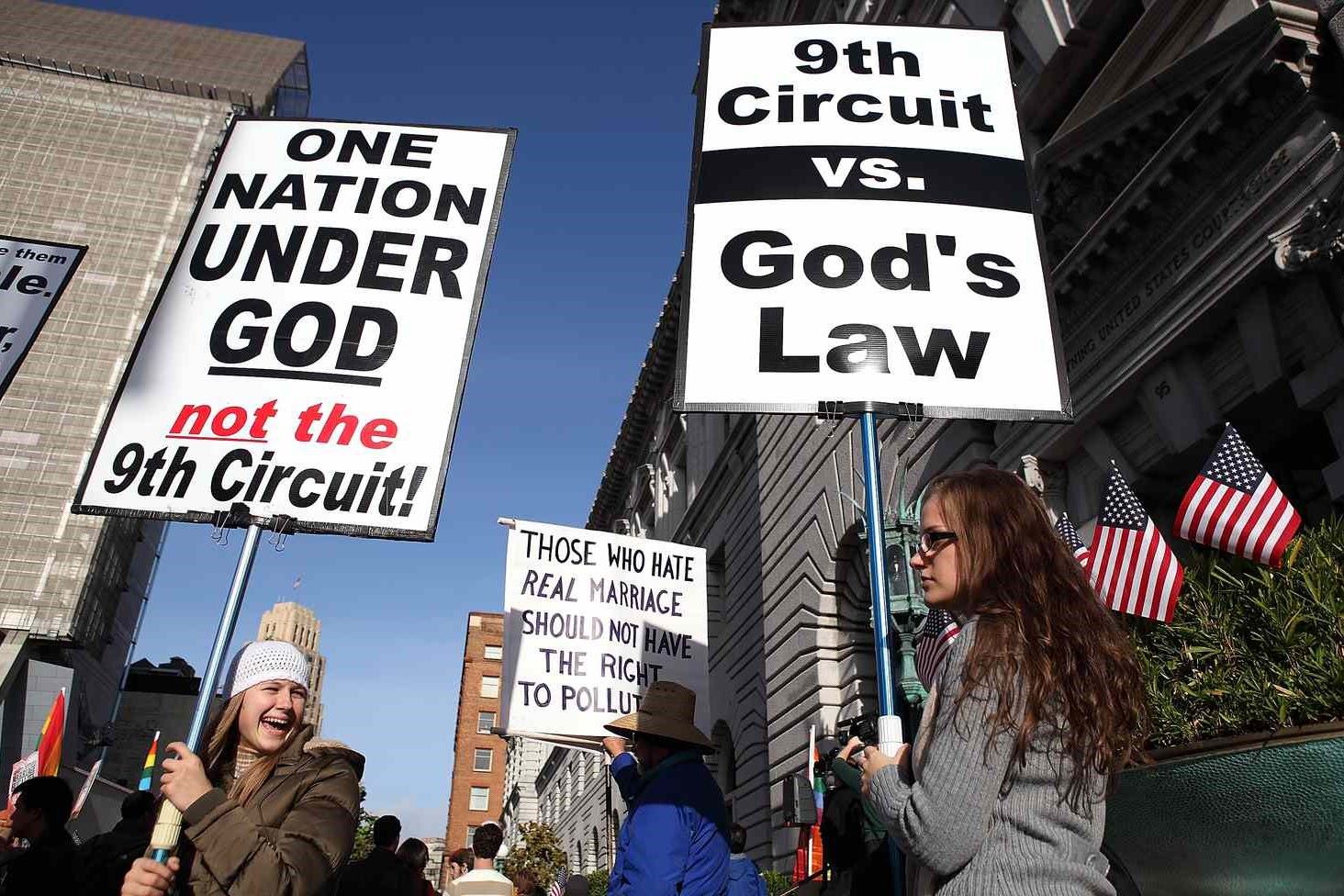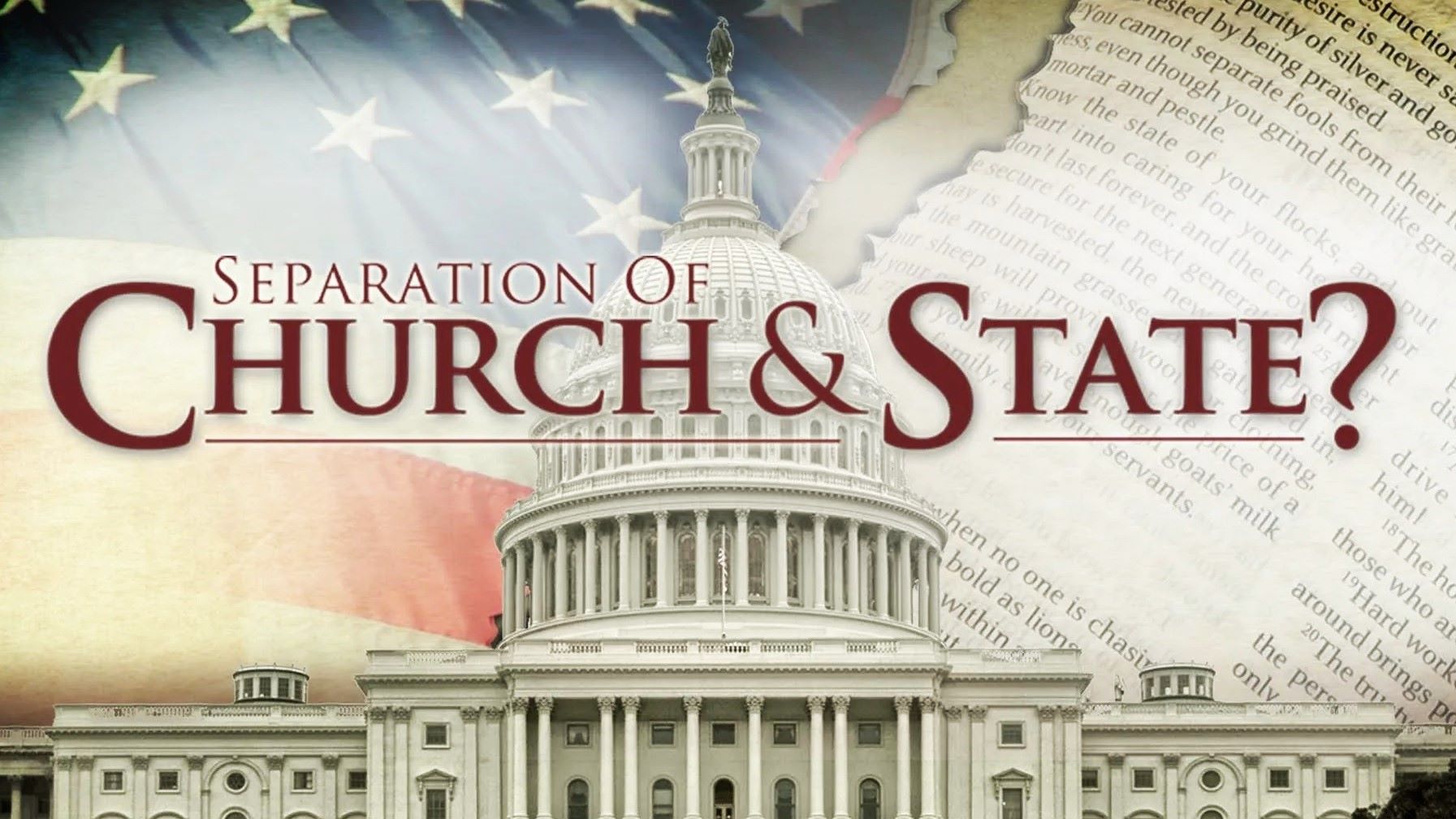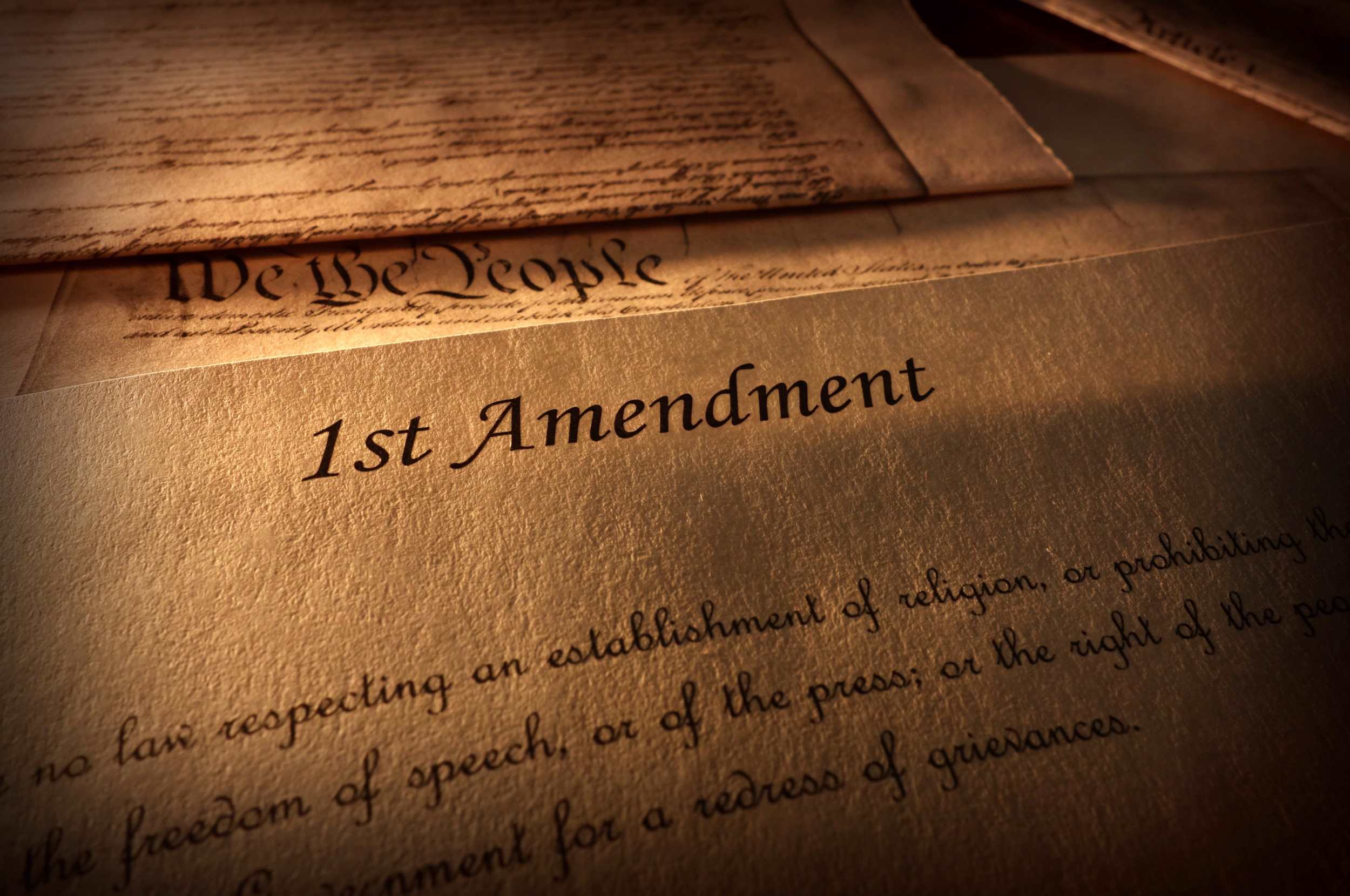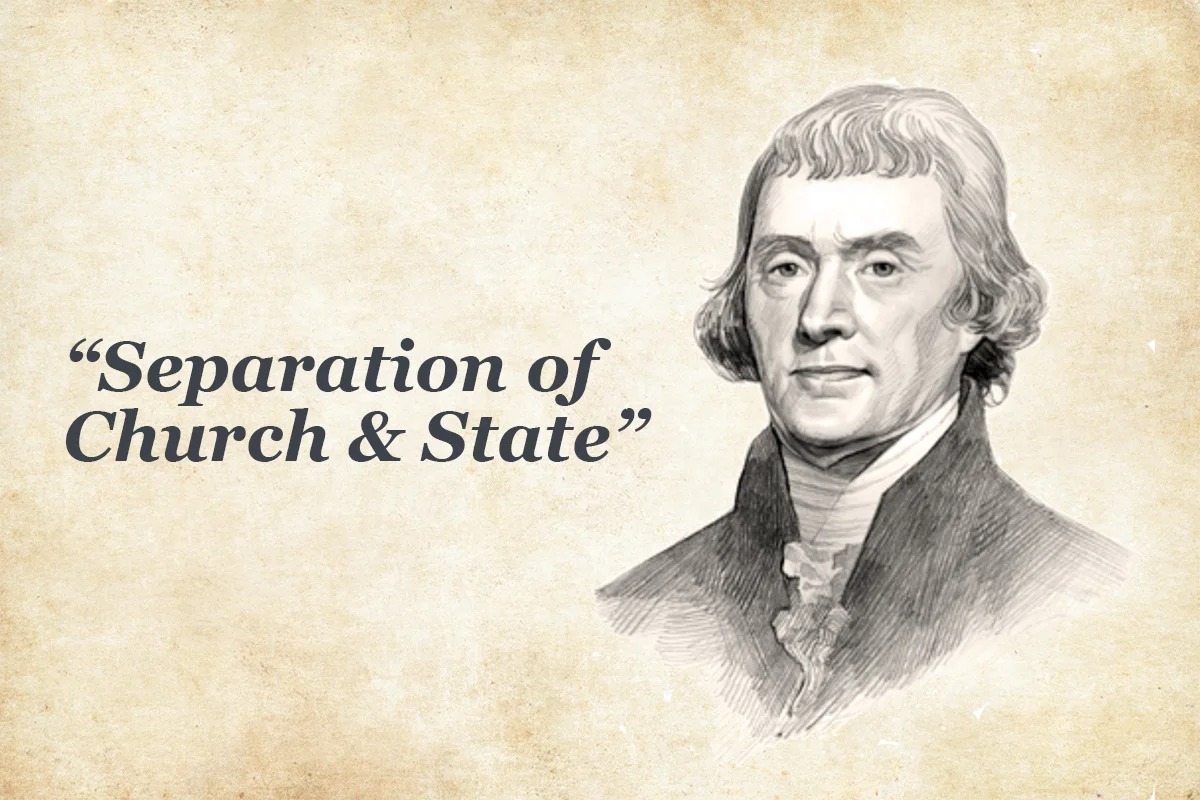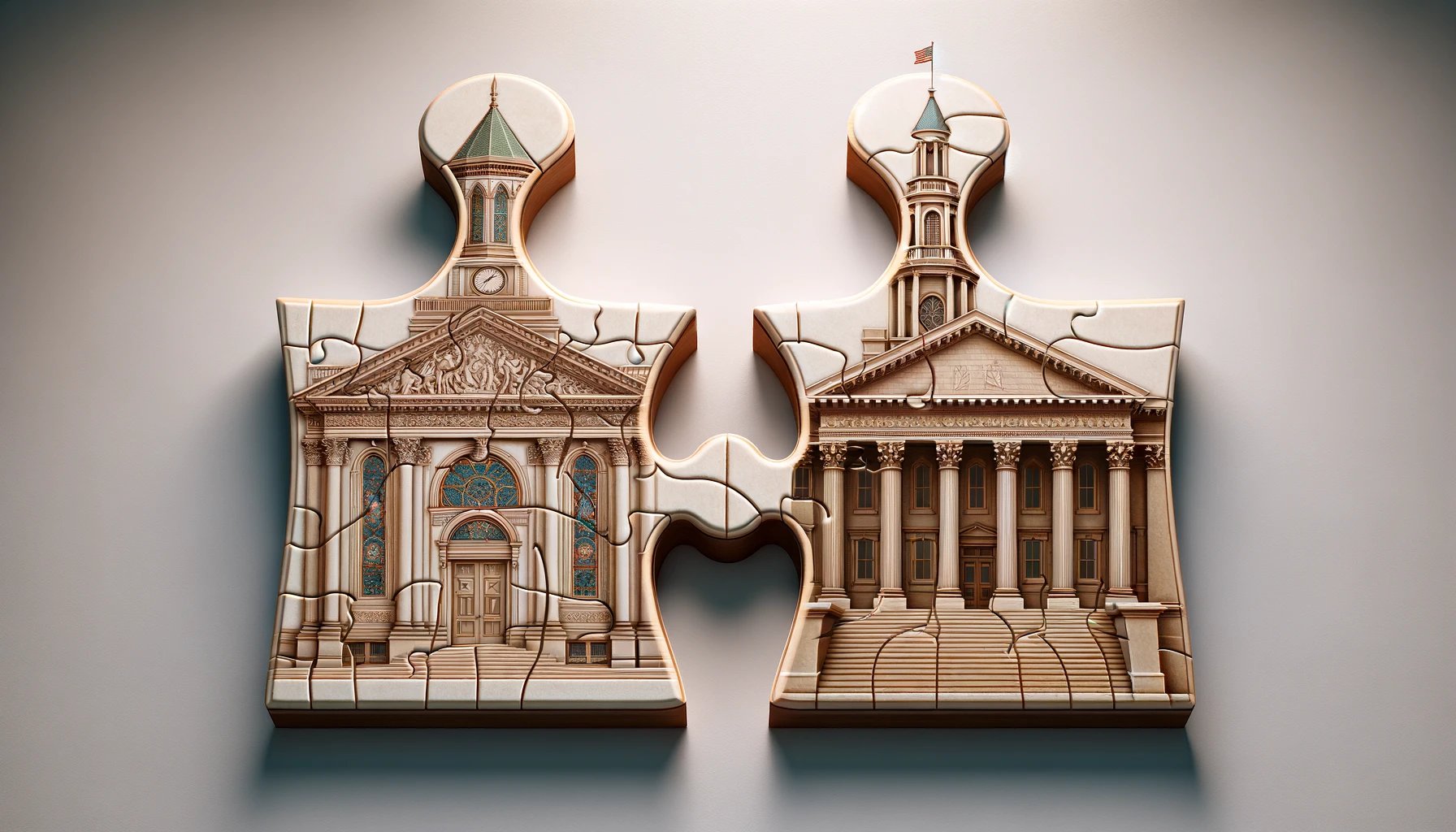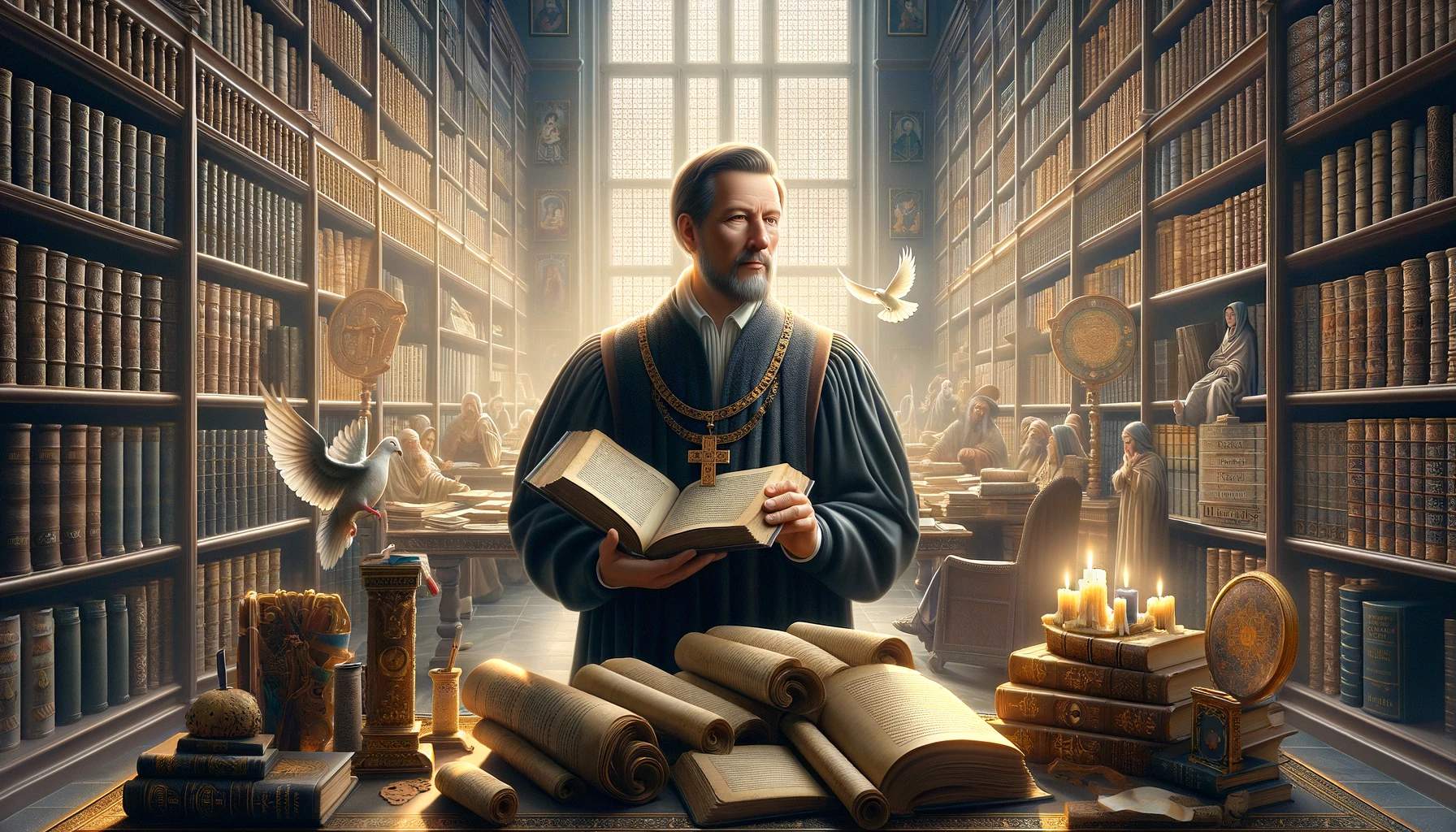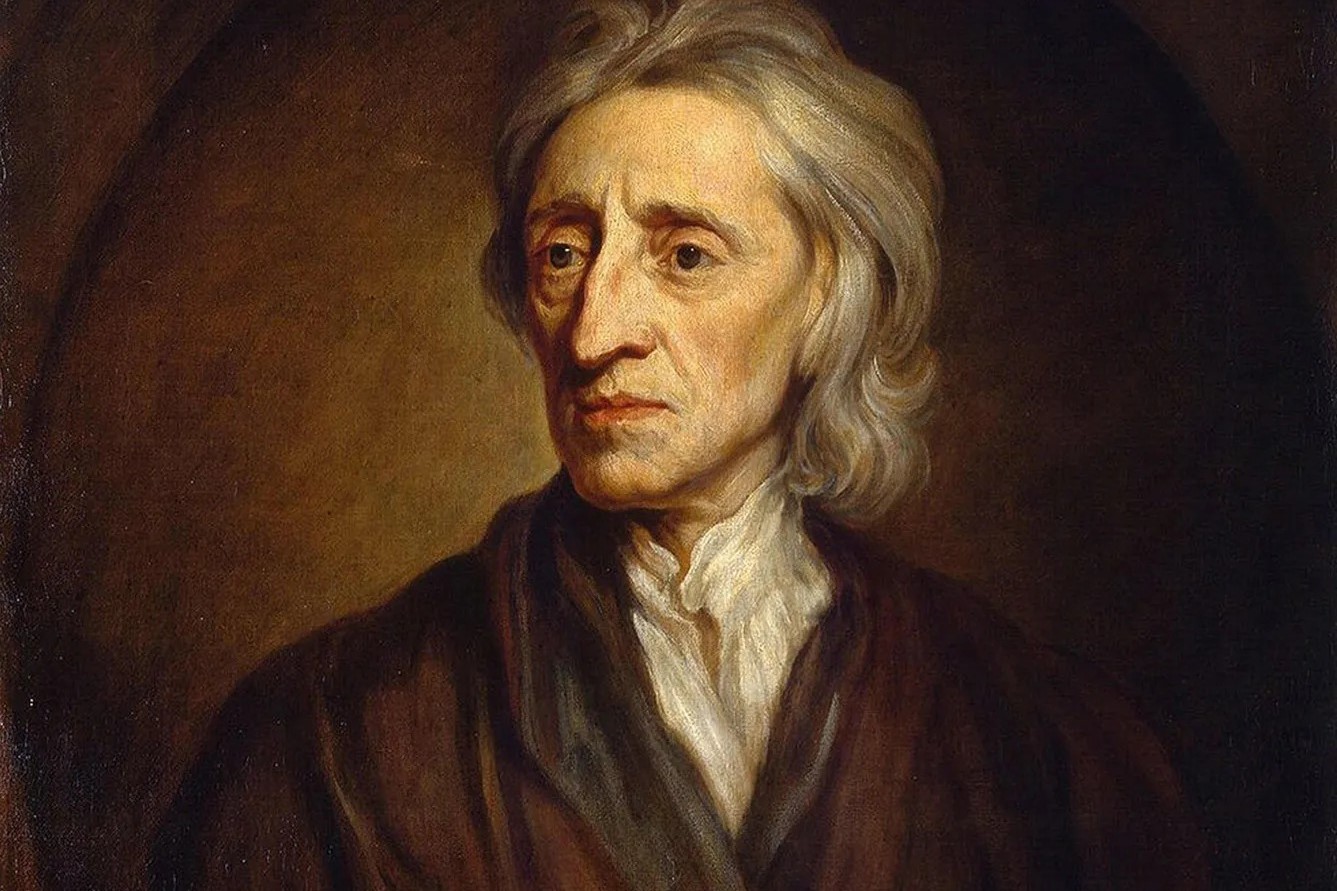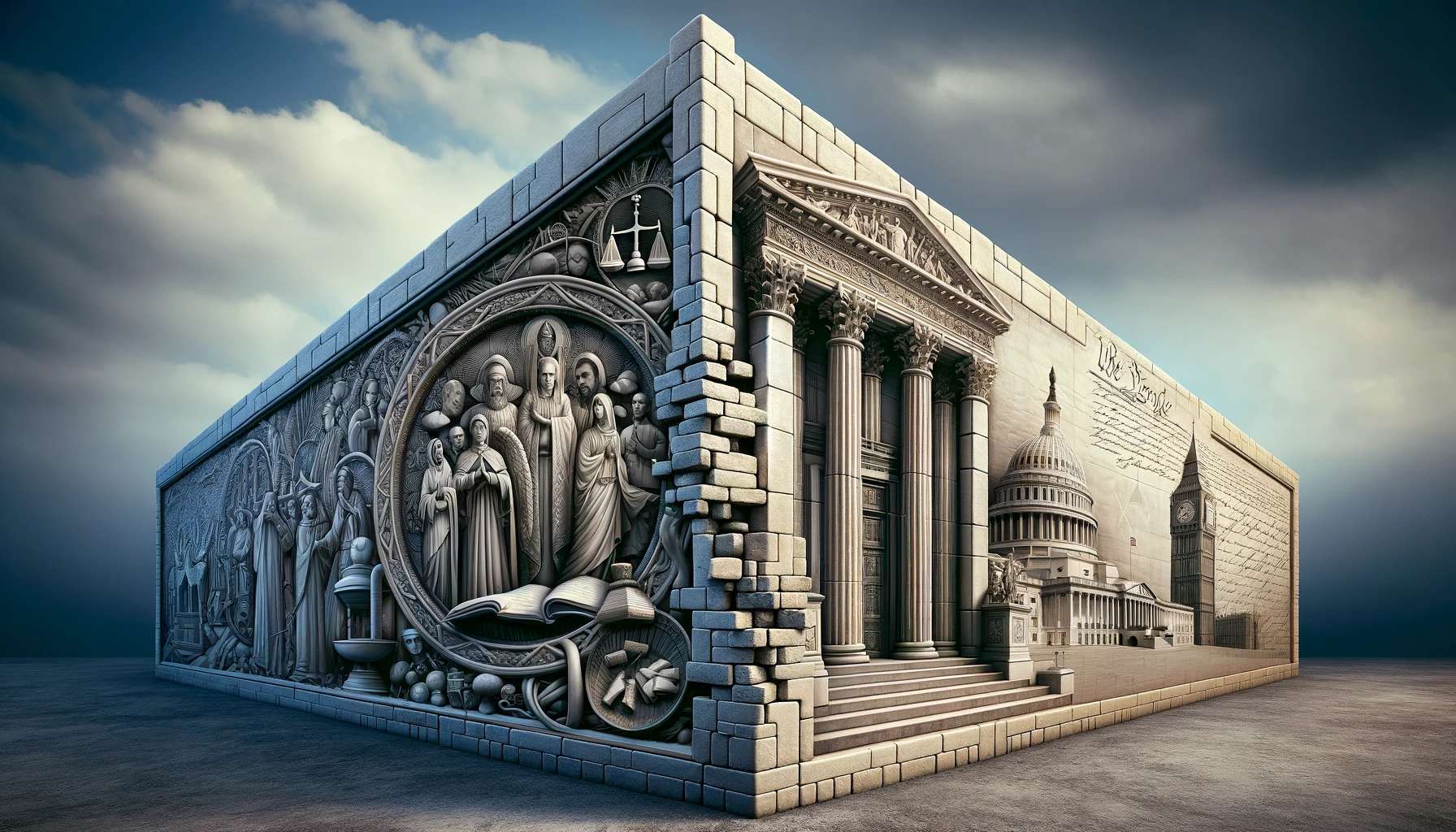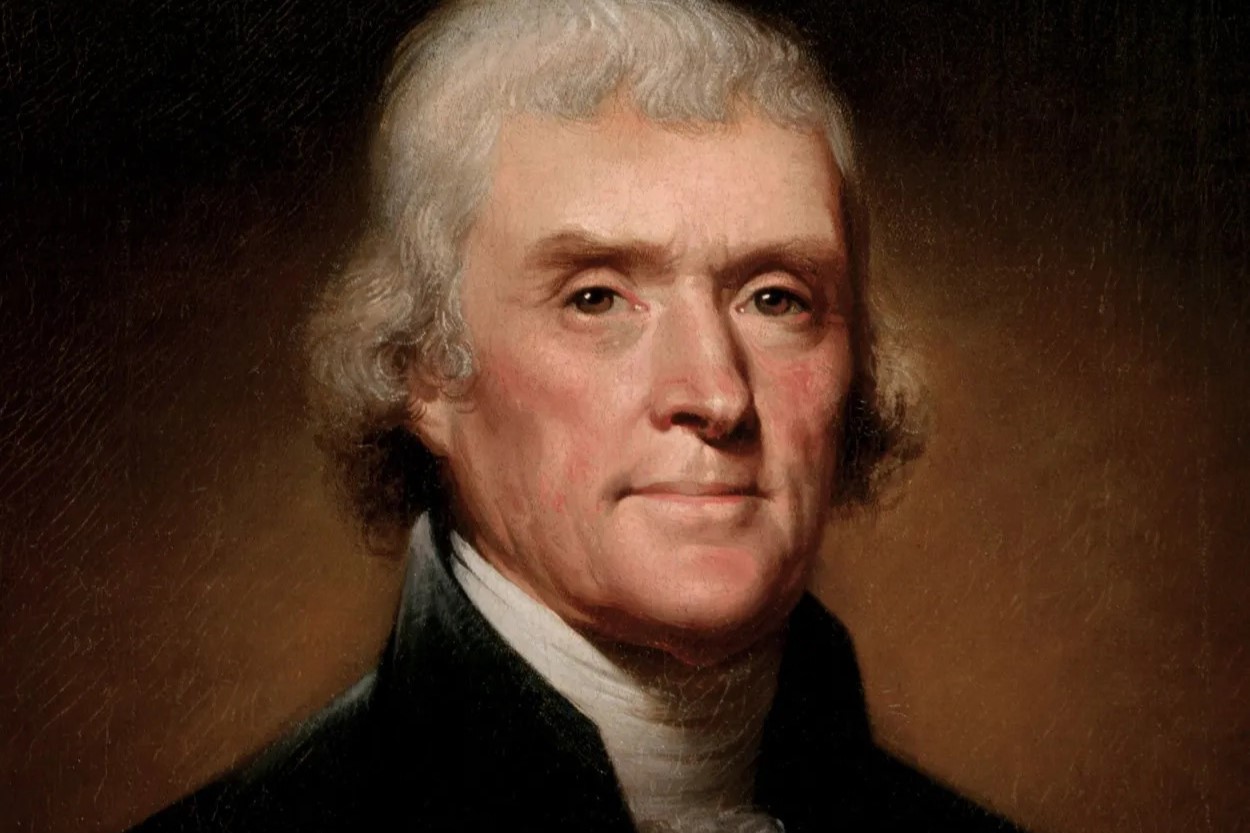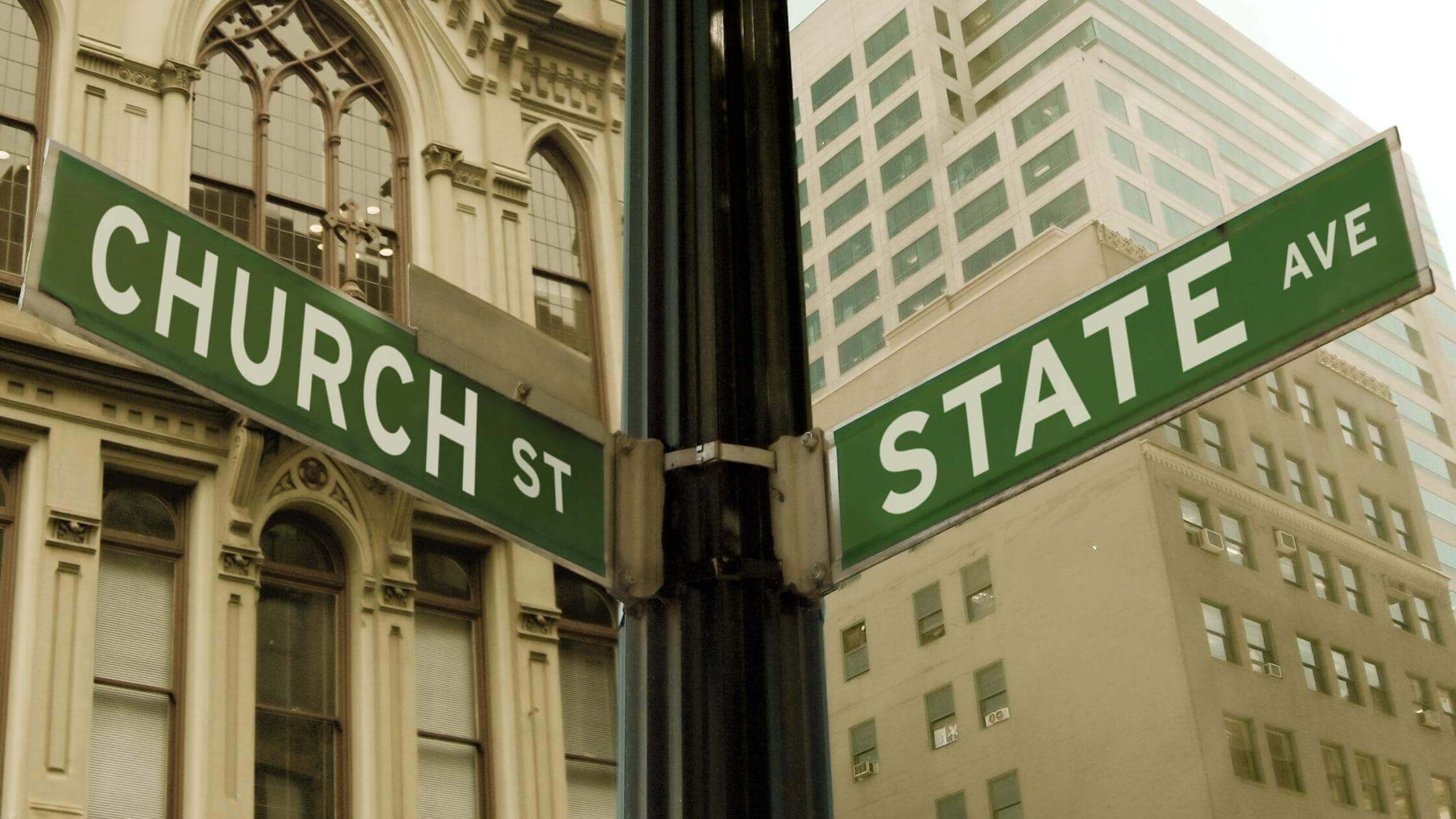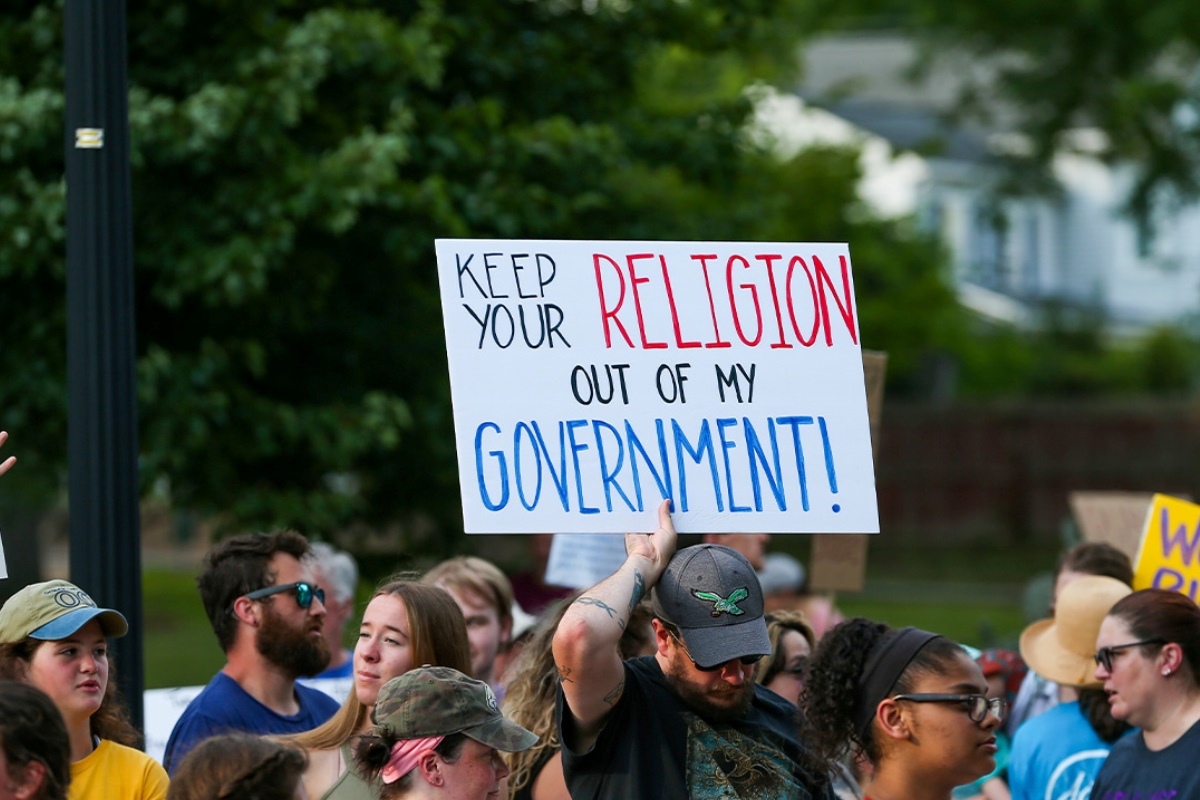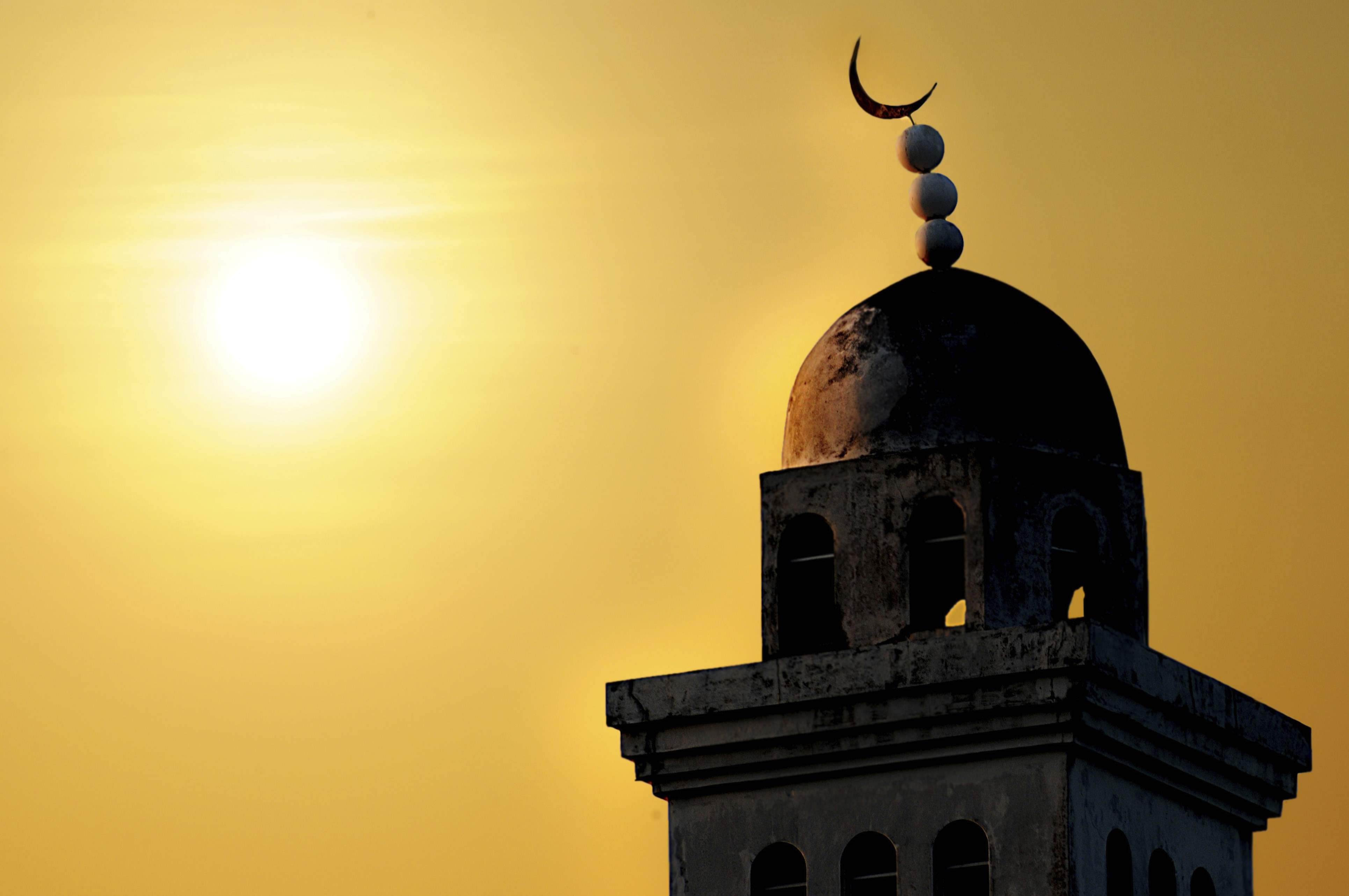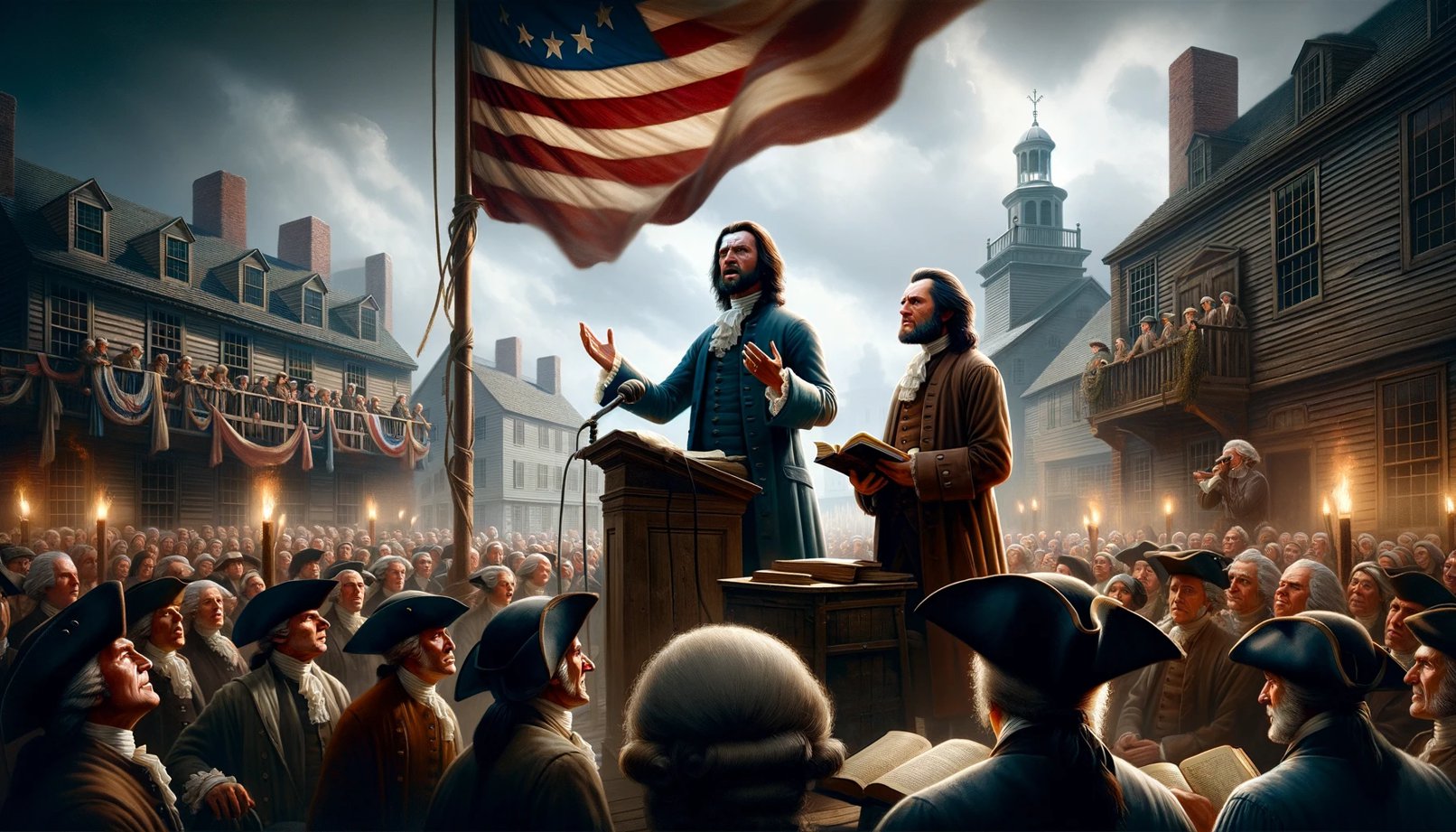Home>Theology and Spirituality>How Did Puritans View The Separation Of Church And State
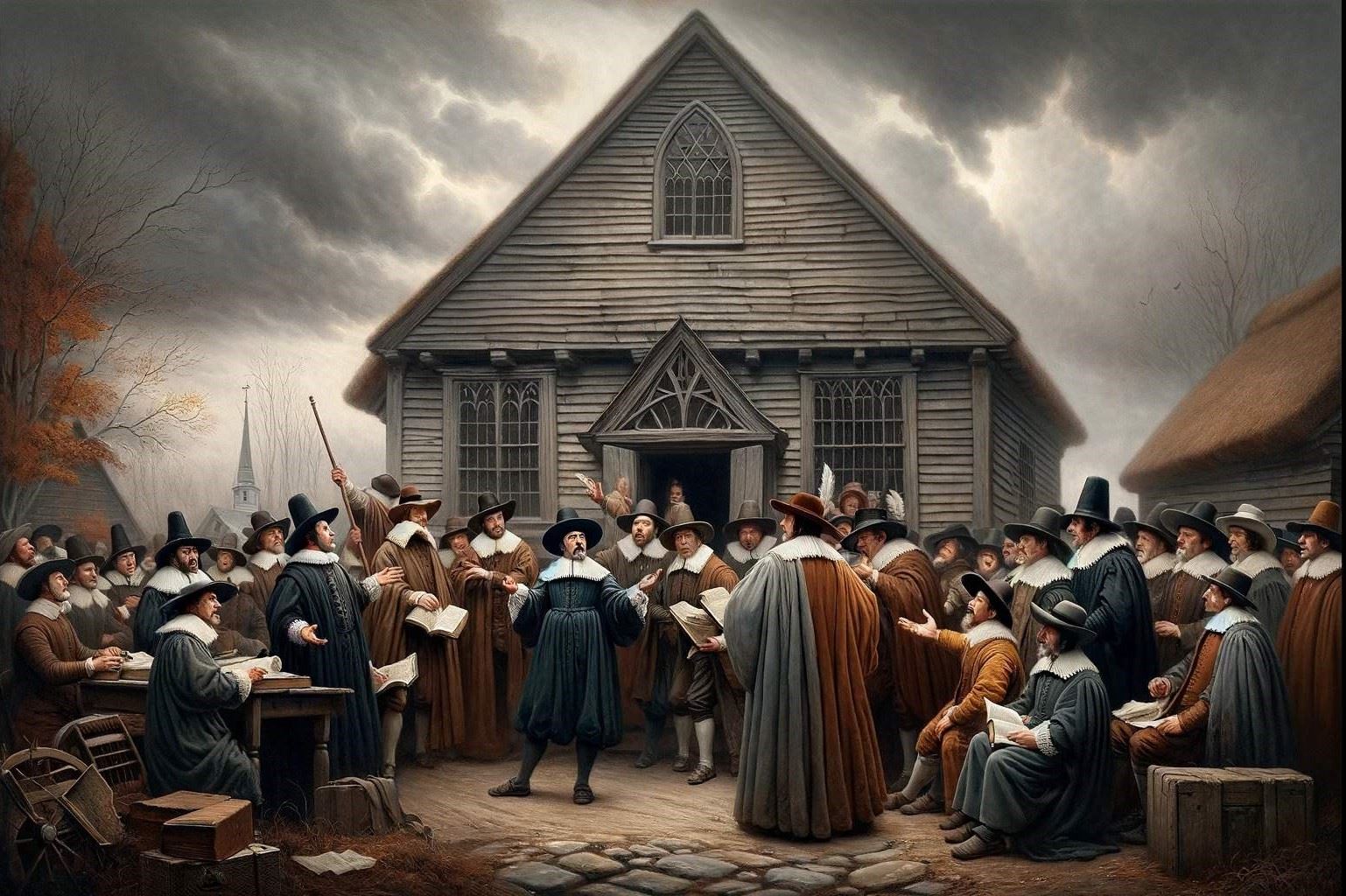

Theology and Spirituality
How Did Puritans View The Separation Of Church And State
Published: February 11, 2024
Ericka Andersen, an editor at Christian.net, expertly merges digital strategy with content creation, focusing on faith and societal issues. Her communication skills enhance the platform's engaging narratives, fostering meaningful dialogue on belief's impact on society.
Discover how Puritans perceived the separation of church and state in this insightful exploration of theology and spirituality. Explore their unique perspective and beliefs.
(Many of the links in this article redirect to a specific reviewed product. Your purchase of these products through affiliate links helps to generate commission for Christian.net, at no extra cost. Learn more)
Table of Contents
Introduction
The Puritans, a religious group that emerged in the 16th century as a faction within the Church of England, held deeply rooted beliefs that significantly influenced their views on the relationship between church and state. As we delve into the Puritan perspective on the separation of church and state, it is essential to understand the historical and theological context that shaped their convictions.
Puritanism was not merely a religious denomination; it was a comprehensive way of life that permeated every aspect of society. The Puritans sought to create a "godly commonwealth," a society governed by the principles of their faith. Their worldview was grounded in the belief that the church and the state should work in harmony to uphold and enforce God's laws as revealed in the Bible.
In exploring the Puritan perspective on the separation of church and state, we gain insight into a pivotal era in religious history and its enduring impact on the development of government and society. The Puritans' unwavering commitment to their religious convictions and their vision of a righteous society continue to resonate in contemporary discussions about the relationship between religion and governance.
As we embark on this exploration, we will uncover the intricate interplay between religious ideology and political structures, shedding light on the enduring legacy of Puritanism in shaping the principles that underpin modern governance. The Puritans' fervent dedication to their beliefs and their quest to establish a society aligned with their religious values provide a compelling lens through which to examine the evolution of the separation of church and state and its profound implications for the fabric of society.
The Puritans' fervent dedication to their beliefs and their quest to establish a society aligned with their religious values provide a compelling lens through which to examine the evolution of the separation of church and state and its profound implications for the fabric of society.
The Puritan Belief in a Godly Commonwealth
The Puritans' vision of a godly commonwealth was deeply rooted in their theological convictions and their aspiration to establish a society governed by the principles of their faith. Central to this belief was the idea that the church and the state should collaborate to create a righteous and harmonious community. The Puritans viewed the establishment of a godly commonwealth as essential for upholding moral order and ensuring the collective adherence to God's laws as delineated in the Bible.
At the core of the Puritan belief system was the notion of a covenant with God. They saw themselves as a chosen people, akin to the Israelites of the Old Testament, and they sought to create a society that reflected this divine covenant. The Puritans believed that their collective obedience to God's commandments would result in His favor and blessings upon their community. This belief in a covenantal relationship with God fueled their commitment to establishing a godly commonwealth.
In the Puritan worldview, the church played a central role in shaping the moral fabric of society. It served as the moral compass, guiding individuals in their conduct and reinforcing the communal adherence to religious principles. The clergy held significant influence, not only in religious matters but also in civil affairs, as they were regarded as spiritual leaders with the authority to guide the community in matters of governance and morality.
The Puritans' commitment to creating a godly commonwealth extended to their approach to governance. They sought to establish a theocratic society where civil laws were aligned with their religious beliefs, and the state was responsible for upholding divine order. This intertwining of religious and political authority was a defining feature of the Puritan vision for their community.
The Puritans' unwavering dedication to their vision of a godly commonwealth shaped the fabric of their society, influencing every aspect of daily life. Their commitment to creating a community founded on religious principles left an indelible mark on the development of governance and the enduring discourse on the relationship between church and state.
In examining the Puritan belief in a godly commonwealth, we gain insight into the profound influence of religious ideology on the formation of societal structures and the enduring legacy of Puritanism in shaping the principles that underpin modern governance.
The Role of the Church in Puritan Society
The Puritan society was intricately intertwined with the church, which played a central and pervasive role in shaping every aspect of community life. The church was not merely a place of worship; it was the cornerstone of the Puritan way of life, exerting profound influence over social, political, and moral dimensions.
At the heart of Puritan society, the church served as the focal point for communal gatherings, religious instruction, and the administration of sacraments. It was a place where the community converged to worship collectively, reinforcing their shared religious identity and fostering a sense of unity. The church gatherings provided a platform for the dissemination of religious teachings, enabling the clergy to impart moral guidance and reinforce the Puritan values that underpinned the fabric of society.
The clergy held a position of significant authority within the Puritan community, wielding influence not only in spiritual matters but also in civil affairs. They were revered as spiritual leaders, guiding the community in matters of faith, morality, and governance. The clergy's teachings permeated every aspect of daily life, shaping the moral conduct of individuals and reinforcing the collective adherence to religious principles.
In addition to its spiritual functions, the church played a pivotal role in maintaining social order and cohesion within the community. It served as a platform for addressing communal concerns, resolving disputes, and fostering a sense of communal solidarity. The church's influence extended beyond religious rituals, encompassing the regulation of social conduct and the preservation of moral rectitude within the community.
Furthermore, the church assumed responsibility for overseeing the moral conduct of its members, ensuring adherence to religious precepts and communal standards. It exercised disciplinary measures to uphold moral order, reinforcing the Puritan commitment to maintaining a righteous and harmonious society.
The Puritans' unwavering dedication to integrating the church into every facet of community life underscored the pivotal role it played in shaping the moral, social, and political landscape of their society. The church's pervasive influence permeated the daily lives of individuals, reinforcing the communal adherence to religious principles and contributing to the cohesive fabric of Puritan society.
In examining the role of the church in Puritan society, we gain profound insight into the profound influence of religious institutions on the formation of societal structures and the enduring legacy of Puritanism in shaping the principles that underpin modern governance.
The Influence of Puritan Views on the Separation of Church and State
The Puritans' perspective on the relationship between church and state was profoundly influenced by their theological convictions and their vision of creating a godly commonwealth. Central to their beliefs was the idea that the church and the state should collaborate to establish a righteous and harmonious society. The Puritans viewed the integration of religious principles into governance as essential for upholding moral order and ensuring the collective adherence to God's laws as delineated in the Bible.
In the Puritan worldview, the church played a pivotal role in shaping the moral fabric of society and guiding individuals in their conduct. The clergy held significant influence, not only in religious matters but also in civil affairs, as they were regarded as spiritual leaders with the authority to guide the community in matters of governance and morality. This intertwining of religious and political authority was a defining feature of the Puritan vision for their community.
The Puritans' commitment to integrating religious principles into governance was manifested in their aspiration to establish a theocratic society where civil laws were aligned with their religious beliefs. They sought to create a society where the state was responsible for upholding divine order, and the governance was intertwined with religious precepts. This holistic integration of religious and political authority reflected the Puritans' conviction that the church and the state should work in tandem to enforce God's laws and maintain a righteous society.
The enduring influence of Puritan views on the separation of church and state is evident in the historical and ideological legacy they have imparted. The Puritans' unwavering dedication to their vision of a godly commonwealth and their integration of religious principles into governance have left an indelible mark on the discourse surrounding the relationship between religion and government. Their fervent commitment to aligning civil laws with religious precepts continues to resonate in contemporary discussions about the role of religion in shaping societal structures and governance.
In examining the influence of Puritan views on the separation of church and state, we gain profound insight into the enduring impact of religious ideology on the formation of governance and the enduring legacy of Puritanism in shaping the principles that underpin modern societal structures.
The Legacy of Puritanism on American Government and Society
The legacy of Puritanism has indelibly shaped the trajectory of American government and society, leaving an enduring imprint on the nation's cultural, political, and moral landscape. The Puritans' unwavering commitment to their religious convictions and their vision of a godly commonwealth has reverberated through centuries, influencing the foundational principles that underpin the fabric of American governance and societal norms.
The Puritans' fervent dedication to creating a society governed by religious principles laid the groundwork for the enduring influence of religious ideology on American governance. Their aspiration to establish a theocratic society, where civil laws were aligned with their religious beliefs, reflects a foundational tenet that has permeated the evolution of American governance. The integration of religious values into the formation of societal structures and governance has left an indelible mark on the nation's ethos, contributing to the enduring discourse on the relationship between religion and government.
Furthermore, the Puritans' emphasis on communal solidarity and the collective adherence to religious precepts has profoundly influenced the moral fabric of American society. Their vision of a righteous and harmonious community, guided by religious principles, has contributed to the enduring moral framework that underpins societal norms. The Puritans' commitment to upholding moral order and fostering a sense of communal responsibility has left an enduring legacy that continues to shape the moral consciousness of American society.
Moreover, the Puritans' dedication to creating a society aligned with their religious values has had a lasting impact on the nation's cultural identity. Their emphasis on the collective pursuit of a godly commonwealth and the communal adherence to religious principles has contributed to the enduring influence of religious values on American cultural norms and societal ethos.
In examining the legacy of Puritanism on American government and society, we gain profound insight into the enduring impact of religious ideology on the formation of governance and the enduring legacy of Puritanism in shaping the principles that underpin modern societal structures. The Puritans' fervent dedication to their vision of a godly commonwealth has left an indelible mark on the nation's governance and societal norms, underscoring the enduring influence of religious ideology on the fabric of American society.
